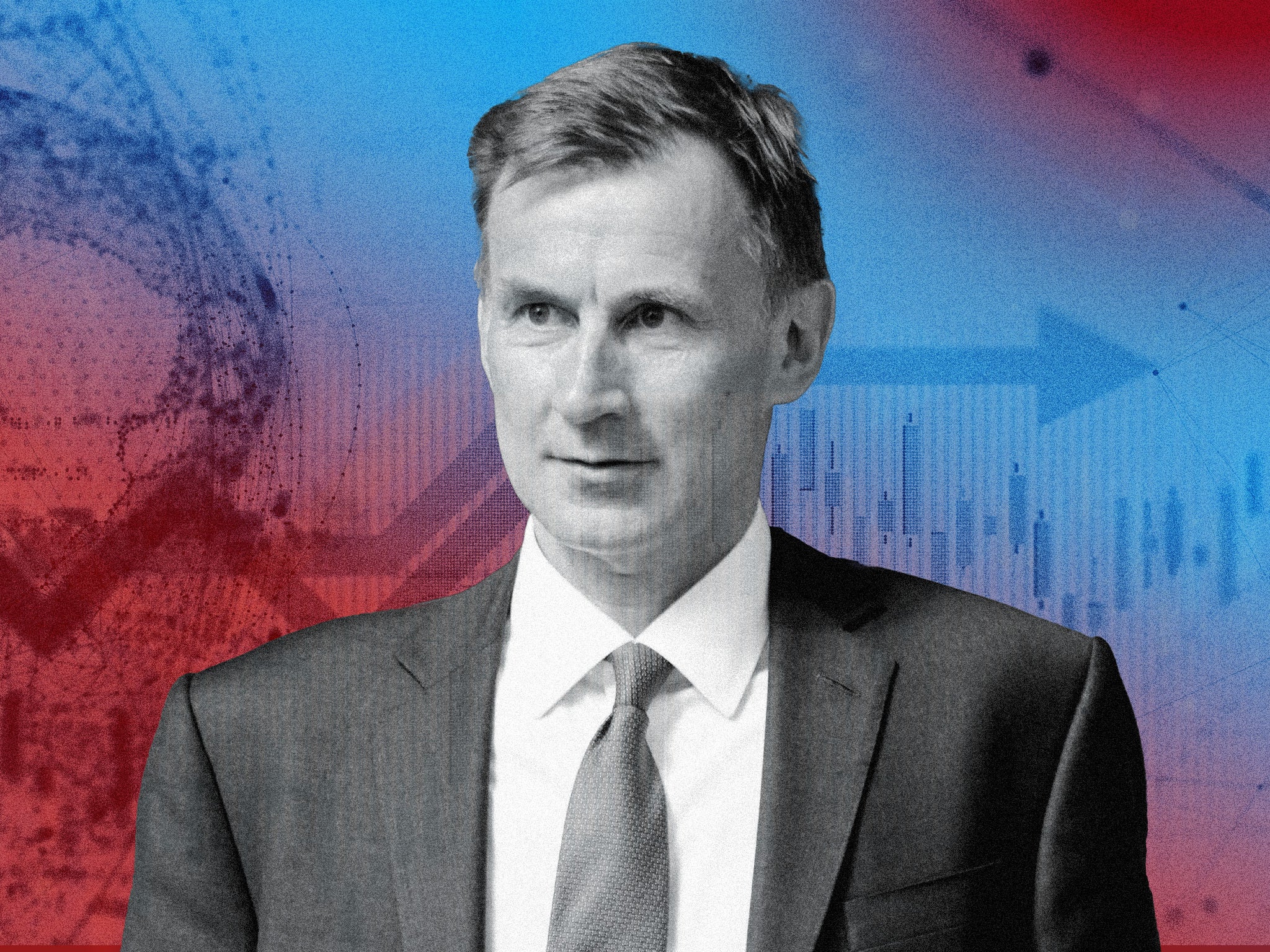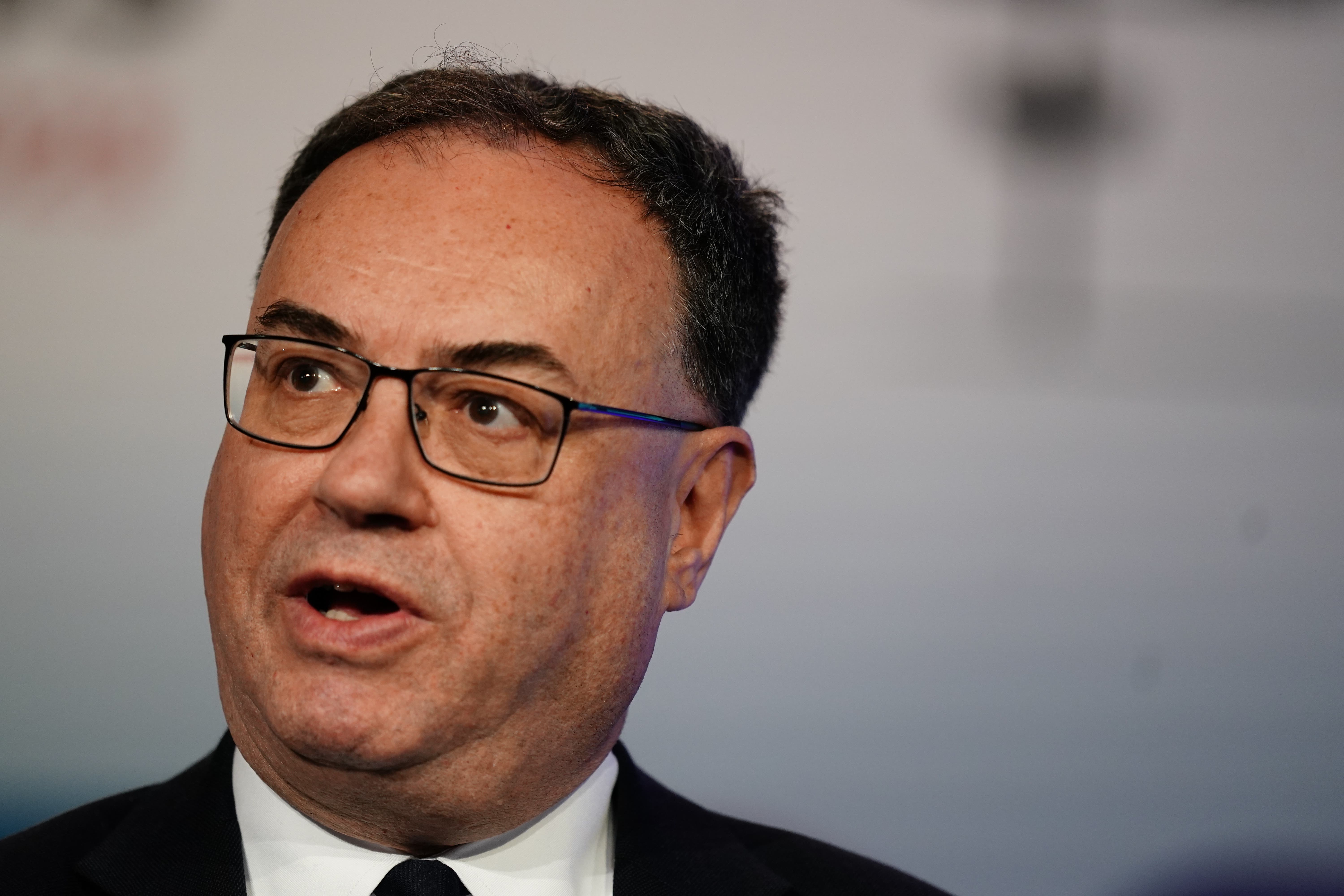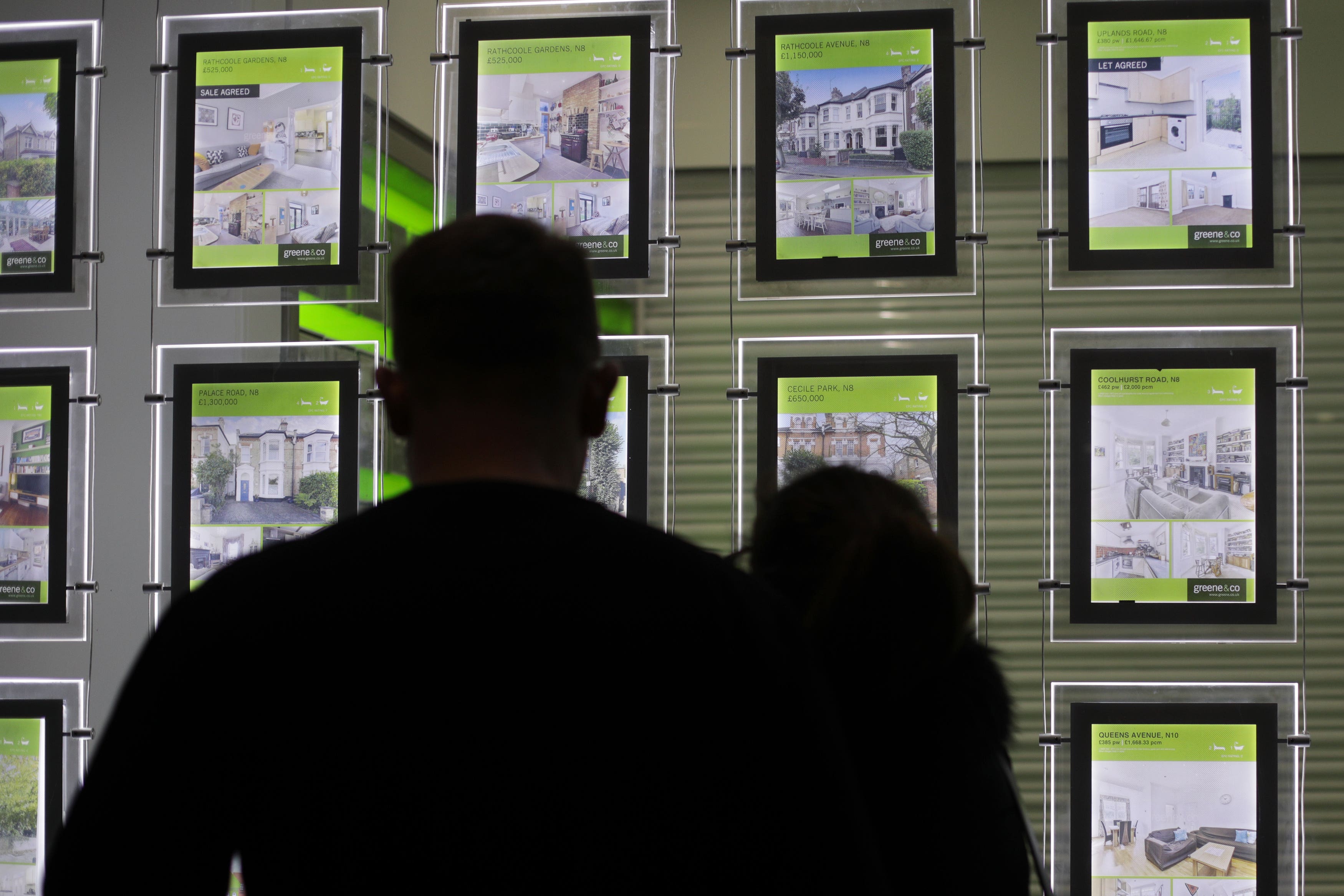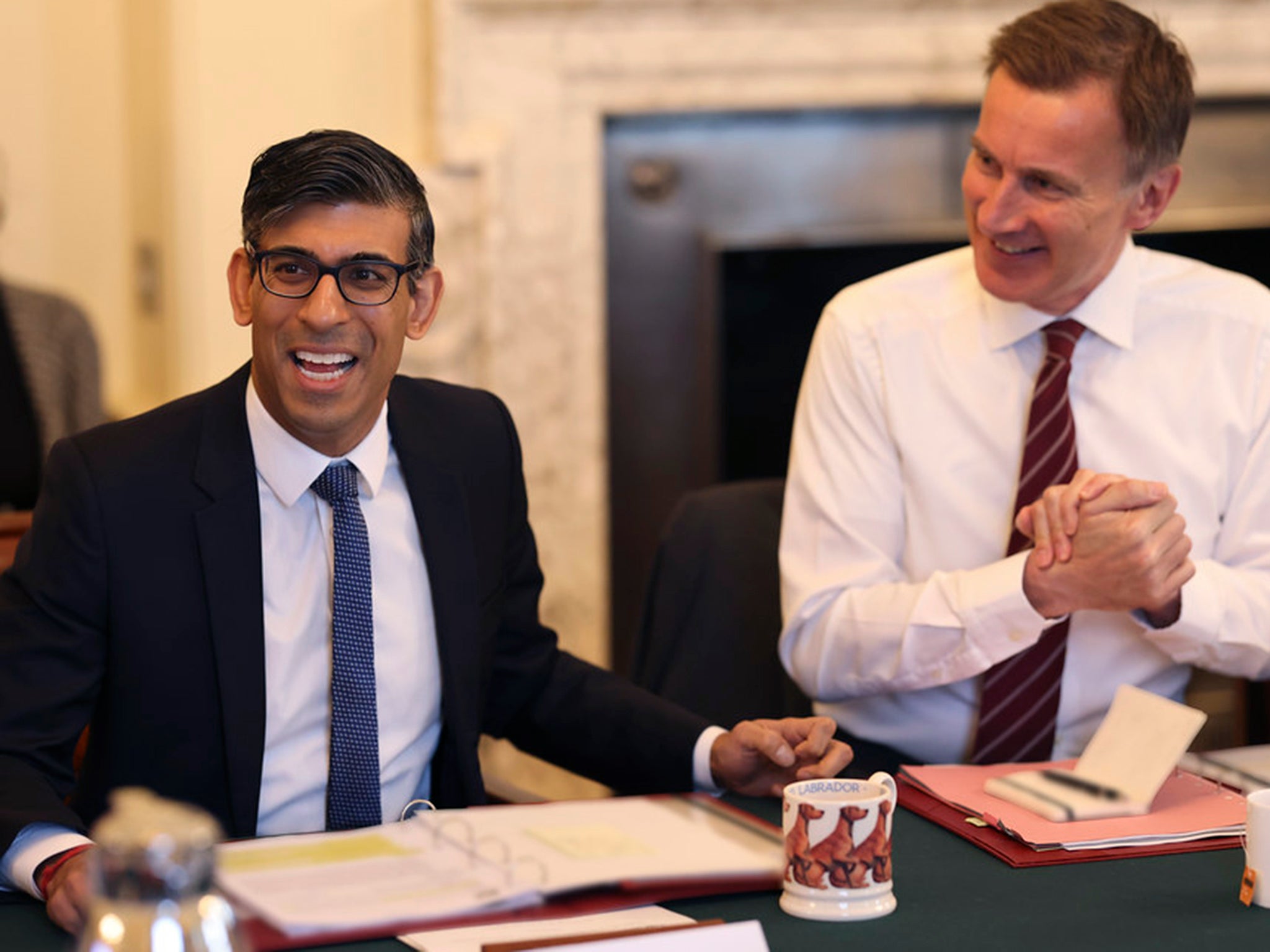Fresh fears for house prices after fastest drop in 12 years
Average home loses 2.6 per cent of value as Bank of England warned not to ‘tank’ mortgage market with interest-rate rise

Your support helps us to tell the story
From reproductive rights to climate change to Big Tech, The Independent is on the ground when the story is developing. Whether it's investigating the financials of Elon Musk's pro-Trump PAC or producing our latest documentary, 'The A Word', which shines a light on the American women fighting for reproductive rights, we know how important it is to parse out the facts from the messaging.
At such a critical moment in US history, we need reporters on the ground. Your donation allows us to keep sending journalists to speak to both sides of the story.
The Independent is trusted by Americans across the entire political spectrum. And unlike many other quality news outlets, we choose not to lock Americans out of our reporting and analysis with paywalls. We believe quality journalism should be available to everyone, paid for by those who can afford it.
Your support makes all the difference.Britain’s house prices recorded their fastest fall in 12 years as the Bank of England was warned of the “dire” impact of further interest-rate hikes on the housing market.
Average prices fell by 2.6 per cent last month compared with a year earlier, according to the widely followed Halifax house price index – wiping £7,500 off the value of a typical property in 12 months.
Property experts have warned that the housing market could “tank completely” if the central bank is forced to raise the base interest rate to 7 per cent. One industry figure said “We ain’t seen nothing yet” on house-price falls, while another said a base rate of 7 per cent would “start to break things” in the market.
The value of the average house declined by 0.1 per cent from May to June, the third consecutive monthly fall as the impact of the Bank of England’s interest-rate hikes began to show. The fall means that:
- An average £294,000 house had around £7,500 wiped off its value in a year
- The value of a £150,000 house will have decreased by around £4,000 in the same timeframe
- A £600,000 house is now worth around £16,000 less than a year ago
Halifax mortgage director Kim Kinnaird said there was still “a degree of stability” in the market, despite the economic turmoil facing homeowners and first-time buyers, adding that the depth of the downturn remains “hard to predict”.
But Jonathan Rolande, founder of the National Association of Property Buyers, told The Independent: “We ain’t seen nothing yet.”
He said prices are only holding up thanks to a large chunk of buyers being locked into low-rate mortgages, as well as the high level of pent-up demand. “When this declines we will see prices falling faster. Things are going to become more difficult for sellers and buyers alike,” he said.

Markets are now betting that the Bank’s base rate will climb to 6.5 per cent by March next year. But leading economist Allan Monks, of JP Morgan, said some indicators suggest that the Bank’s key rate would have to go to 7 per cent in order to curb inflation.
Craig Fish, managing director at mortgage broker Lodestone, said that if interest rates were to hit 7 per cent, the mortgage market would “tank completely”.
He told The Independent: “If we see rates hit 7 per cent, I genuinely think house prices going down 35 per cent is possible. I think it is going to be dire. That is why I cannot see it going to 7 per cent, because it would just have such dire consequences.”
Tom Pugh, an economist at consultancy RSM, warned that a base rate of 7 per cent would “start to break things”, as he suggested that house prices could fall by more than 20 per cent.
Riz Malik, director of independent mortgage broker R3 Mortgages, said that further rate hikes could be “the straw that breaks the camel’s back”.
He predicted at the start of the year that house prices could fall by between 10 and 15 per cent, and said that if interest rates increase further, some homeowners will be pushed into negative equity – where a person’s mortgage is larger than what their house is worth.

But Professor Abhinay Muthoo, a fellow at the National Institute of Economic and Social Research, insisted that there is “no need to panic” as Britain is “not in a 2007-2008 scenario”, referring to the global financial crisis that took place 15 years ago.
He told The Independent: “The financial crisis of 07-08, that was panic time. We are not there. But people who are already suffering right now will suffer more.”
The residential research director at property consultancy JLL, Marcus Dixon, told The Independent that while it is a “challenging” market, he does not expect house prices to crash, predicting that they will fall by around 6 per cent by the end of this year.
“If you look back at what happened in the global financial crisis, there were a lot of forced sales because people lost their jobs or did not have much equity in their properties,” Mr Dixon said. “We are not seeing that at the moment. The employment market is very buoyant.”
It comes as the Bank of England pushed UK interest rates up to 5 per cent last month, the highest level in 15 years. Average five-year fixed-rate mortgage deals jumped above 6 per cent for the first time since November.
The latest figures from experts Moneyfacts show that an average two-year fixed residential mortgage rate on Friday was 6.54 per cent, up from 6.52 per cent the previous day.
Tory MP Lucy Allan, who warned in June that Britain was heading for a “mortgage catastrophe”, told The Independent that prices would continue to fall if Rishi Sunak’s government and the Bank refused to consider other ways to control inflation.

Ms Allan said buyers have “dried up” because of the increase in borrowing costs, while those with unaffordable mortgages are trying to exit the market. “Inevitably this causes house prices to fall. It’s simple economics, supply and demand,” she said.
And she added: “[The] government must look at other means of controlling inflation than continuing to hike up interests rates, otherwise house prices will continue to fall, with a rise in forced [sales] and repossessions. We can’t go on as we are.”
Tory minister Robert Halfon said Britain is in a “very difficult economic situation”, though falling house prices could help first-time buyers. “But it will be tough,” he added. “There’s no denying that the economic situation is incredibly challenging.”
Meanwhile, government borrowing costs have gone above levels seen during Liz Truss’s disruptive six-week premiership. The gilt yields on 10-year UK government bonds – a key indicator of the cost of borrowing – rose above the peak reached in the autumn in the wake of the disastrous mini-Budget.
It comes amid renewed gloom about energy prices. The Cornwall Insight consultancy said British electricity prices won’t fall below 2022 levels “until the late 2030s”.






Join our commenting forum
Join thought-provoking conversations, follow other Independent readers and see their replies
Comments